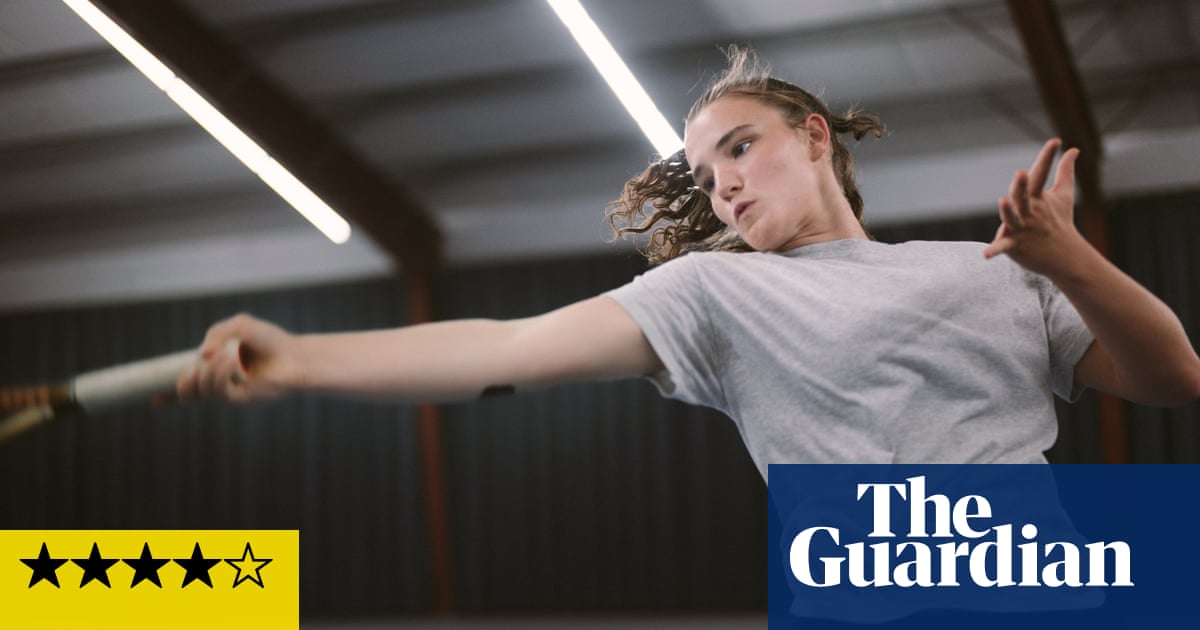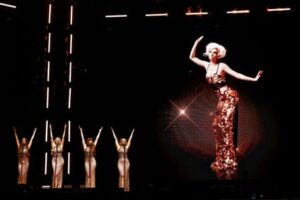
Filmgoers are currently gobbling up Luca Guadagnino’s tennis comedy Challengers with its hilariously imagined sexual dynamic between a female coach and male players. This debut feature from Belgian film-maker Leonardo Van Dijl, produced by Jean-Pierre and Luc Dardenne, is a reminder that in the real world, the gender relations of sex and power in tennis – or anywhere – are generally pretty different. Julie Keeps Quiet is a tense, absorbing movie of silences and absences, of difficult terrain skirted around, of subjects avoided. It’s a reminder that in key situations, to keep quiet is a stressful, strenuous and, crucially, public activity – and a survival instinct that many young people have to learn.
The scene is an exclusive Belgian youth tennis academy where Julie is the star player, played very convincingly by newcomer and talented teen tennis player Tessa Van den Broeck. Julie’s ferocious skills are clearly bringing her to the brink of professional stardom under the aegis of the Belgian Tennis Federation, and extended sequences in the film show her simply playing, hitting, training and working out, her anxieties sublimated into sport. Yet at the very beginning, Van Dijl shows us Julie weirdly playing “mime” tennis, running about the court, pretending to hit a non-existent ball.
Like everyone else in the academy, Julie is stunned by news that a young woman called Aline, the academy’s star pupil of a few years ago, has taken her own life, having abandoned tennis and suffered from depression; there are whispers that it had something to do with “lockdown”. But then head coach Jeremy is suspended while the academy launches an internal investigation, whose procedures are opaque. And now all eyes are on Julie who has taken over Aline’s status as the star pupil and has been in intimate, unsupervised contact with Jeremy every day, and continues to talk to him on the phone. Ever so delicately, the academy suggests via her teachers and school that Julie might like to tell them something – in fact, to testify in a way. But Julie keeps quiet.
Yet the point here is that everyone is keeping quiet. The weather of the film, its atmosphere of normality doggedly pursued, is governed by that quiet. Van Dijl shows us that the academy’s staff realise that the prime candidate for accuser-in-chief would of course be Julie herself. They know that this investigation of theirs might well be the prelude to police action and that the investigation will itself be looked at by the police. They have to be seen to have examined rigorously the obvious possibility that abuse has gone further. But they are also performatively sensitive, not wanting to push Julie when there is, as yet, no explicit question of wrongdoing; this sensitivity dovetails conveniently with the fact that they perhaps have no great desire to uncover systemic abuse that would point to their own complicit negligence.
So the eerie quiet goes on. And Julie herself realises what it is she is being loyal to; she is smart enough to realise that to testify in any way would be to have her whole existence defined by this, and very possibly spoil her sporting future. Yet she also cringes and flinches from the way the replacement instructor gives Julie top-of-the-class status, making the rest of the class watch as she demonstrates a perfect second-serve technique and refusing to punish her when she is late for practice. Julie understands, as does the rest of the class and indeed the audience, that this is exactly the kind of favouritism Jeremy went in for, and it is being reinterpreted by everyone around her. This is a gripping study in dysfunction and repression.
Source: theguardian.com


















